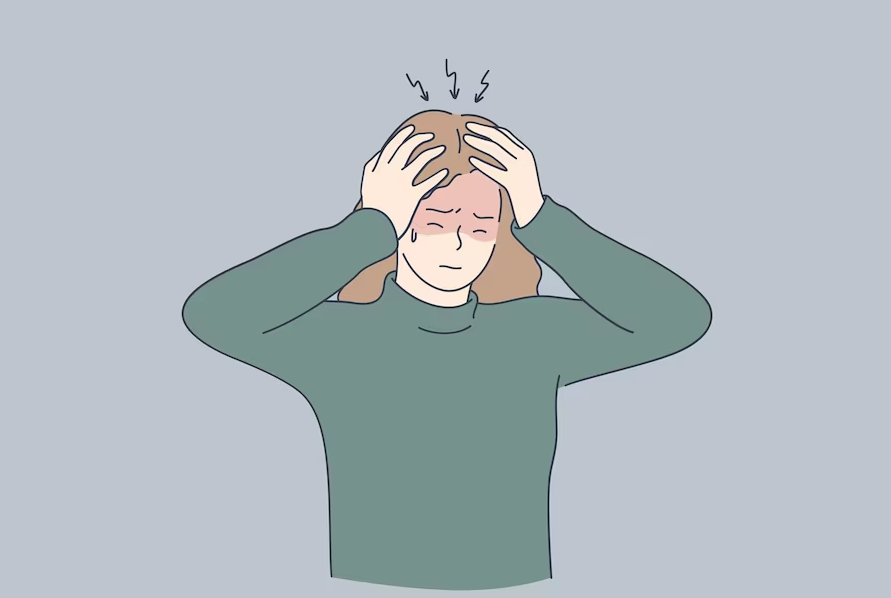Does Glutathione induce headaches after IV Therapy?

The topic of whether or not consuming or receiving Glutathione via IV causes headache is one that has been widely debated in recent years. Various studies have been conducted to determine the relationship between Glutathione consumption and headache occurrence, but the results remain inconclusive.
Glutathione injection or Glutathione IV Drip Therapy has become increasingly popular in recent years due to its purported health benefits. Many people have turned to this treatment to improve their skin complexion, boost immune function, and detoxify their bodies. However, some individuals claim that they have experienced headaches after receiving Glutathione.
Despite these claims, there is no scientific evidence that supports the idea that glutathione injections or IV drips cause headaches. In fact, medical experts maintain that these treatments are generally safe and well-tolerated by most patients. The headache may be caused by other factors such as dehydration or a reaction to the needle used for injection.
Biology of Glutathione
This small molecule plays an essential role in many biological processes, including immune response, detoxification, and cellular repair. It helps to neutralize free radicals, which are unstable molecules that can damage our DNA and lead to chronic diseases like cancer, diabetes, and heart disease. Studies have shown that IV glutathione therapy can improve symptoms associated with a variety of conditions such as Parkinson’s disease, fibromyalgia, and liver disease.
Glutathione is naturally produced by the body, but levels can be depleted due to stress, poor diet, and environmental factors such as pollution. It’s also important to get it through natural sources.

Natural Sources of Glutathione
One of the most abundant sources of glutathione is found in sulfur-rich foods such as garlic, onions, broccoli, kale, cabbage, and cauliflower. These foods contain high levels of cysteine – an amino acid that is essential for the production of glutathione within the body. Consuming these vegetables regularly can help boost your glutathione levels and reduce your risk of developing chronic diseases.

No Clinical Evidence of Glutathione Headaches
Real-life testimonials also suggest that glutathione can cause headaches in some individuals. On online forums and social media platforms, individuals have reported experiencing headaches after taking glutathione supplements. For example, one person wrote on a health forum, “I started taking glutathione supplements a few weeks ago, and I’ve been experiencing terrible headaches ever since. I’m not sure if it’s related, but the timing seems to coincide.”
While the exact mechanism behind the link between glutathione and headaches is not yet fully understood, it is thought to be related to changes in blood flow and intracranial pressure. Glutathione is involved in the regulation of blood vessels and can cause vasodilation, or the widening of blood vessels. This can lead to an increase in blood flow to the brain, which can cause a temporary increase in intracranial pressure and result in a headache.
It is important to note that NOT everyone who takes glutathione supplements, injections, or receives intravenous infusions will experience headaches. The likelihood of experiencing headaches may depend on a variety of factors, including dosage, individual sensitivity, and underlying health conditions. More research is needed to better understand the relationship between glutathione and headache development. Individuals who experience persistent or severe headaches while taking glutathione should consult their healthcare provider for further evaluation and management.
Mitigation Strategies for Glutathione Headaches
Some people may experience headaches after taking glutathione supplements or receiving glutathione injections. These headaches are often referred to as “glutathione headaches” and can be quite debilitating, causing nausea, dizziness, and sensitivity to light.
Fortunately, there are several mitigation strategies that individuals can employ to reduce the likelihood of experiencing glutathione headaches. One strategy is to lower the dosage of glutathione taken or administered. Another strategy is to take supplements with food or at night before going to bed to prevent stomach irritation. Drinking plenty of water throughout the day can also help flush out any excess glutathione in the system and prevent buildup.
For those who do experience headaches after receiving glutathione injections or IV drips, it is essential to seek medical attention promptly. A qualified healthcare professional can evaluate your symptoms and determine whether any underlying issues need addressing.
In a nutshell, while there is some evidence suggesting that glutathione may be linked to headaches in some individuals, more research is needed to fully understand this relationship. Scientific studies have shown that in certain cases, elevated levels of glutathione or its precursors can trigger headaches. However, the mechanisms underlying this association are not yet fully understood, and other factors such as genetics and environmental triggers may also play a role. It is important for individuals who suffer from frequent headaches to seek medical advice and discuss their symptoms with a healthcare professional. Further research is needed to determine the exact relationship between glutathione and headaches, as well as to explore potential treatment options for individuals experiencing these symptoms.